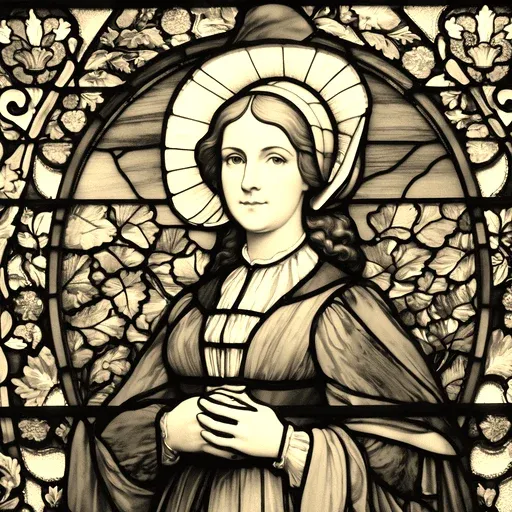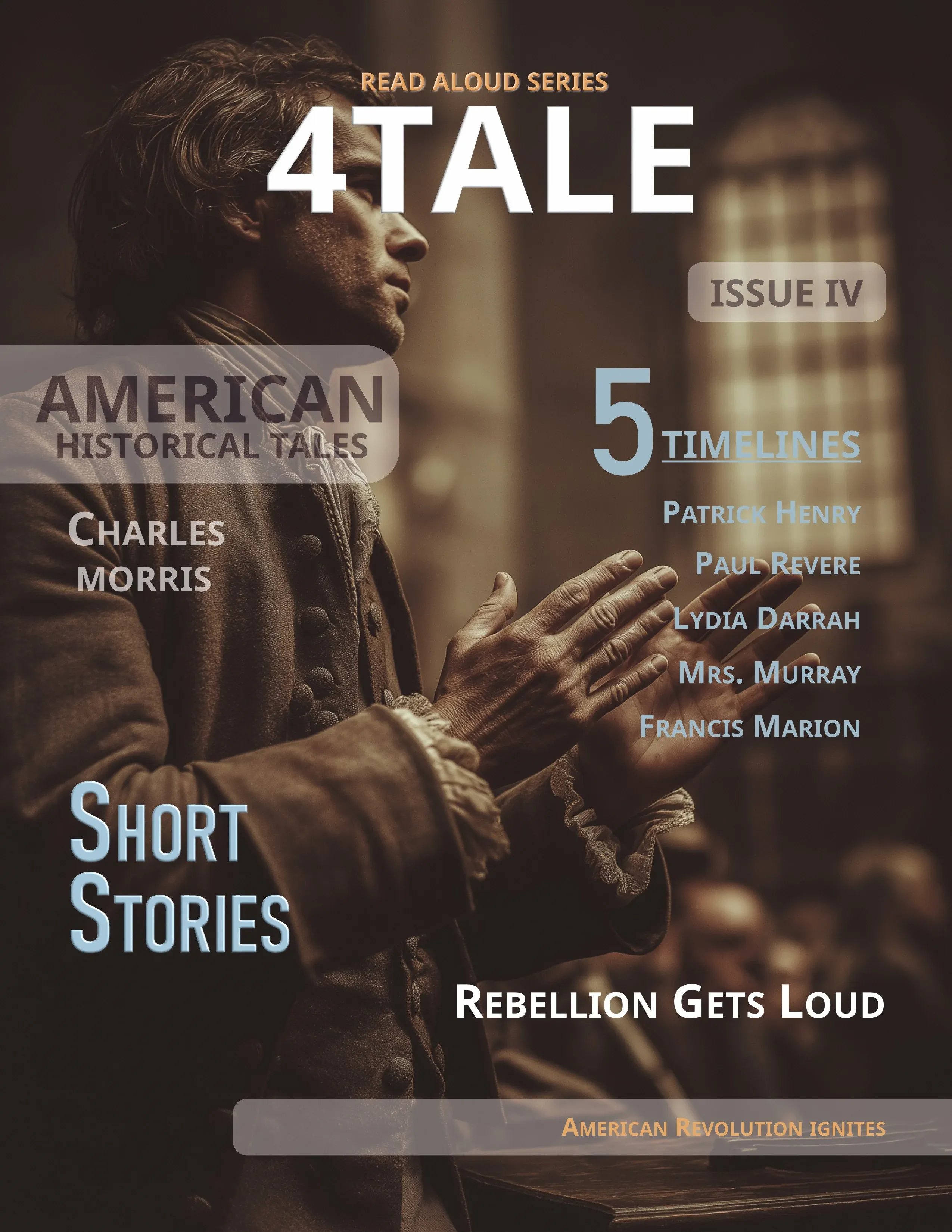BY CHARLES MORRIS
A Quakeress Patriot
Historical Tales 1 American: Story 15 of 27

Heading
Action Taken: Despite personal risk, Lydia Darrah chose to act on her loyalty to the American cause by warning the American troops of the impending British attack.
Historical Impact: The failure of the British plan due to Lydia's intervention is highlighted as a significant moment in the American Revolutionary War, showcasing individual bravery and strategic impact.
A good book we like, we explorers. That is our best amusement, and our best time killer
- Roald Amundsen, Explorer
Unveiling the Secrets of Loxley's House: The Untold Story of Lydia Darrah's Heroism During the Revolution
Steeped in the rich tapestry of American history, the unassuming Loxley's House on Second Street below Spruce in Philadelphia, holds a captivating tale of bravery and subterfuge. Nestled within its venerable walls, lies an extraordinary story of a common Quaker woman, Lydia Darrah, who played an instrumental role during the Revolution. In an era marked by conflict and fear, her audacious act of defiance against the British occupation not only demonstrated her unflinching patriotism but also significantly altered the course of the war. Prepare to delve deep into the annals of history, as we uncover this forgotten heroine's riveting tale.
The Historical Significance of Loxley's House
Nestled on Second Street below Spruce in Philadelphia, an antiquated mansion known as "Loxley's House" was once the proud residence of Lieutenant Loxley. He served in the artillery under Braddock, participating in the infamous defeat that is still spoken of in hushed tones. The mansion, which bears historical significance, witnessed several pivotal moments during the Revolution, becoming an intriguing backdrop to the drama of the era. Its robust structure and venerable age narrate a tale of the past that echoes through the annals of time.
The Occupants: The Darrah Family and the British Officers
During the tumultuous times of the Revolution, the mansion was occupied by a Quaker named Darrah and his wife Lydia. However, it was Lydia who assumed the role of the ruling spirit of the house. When the British occupied Philadelphia, patriots and royalists alike were compelled to open their homes to the unwelcome guests. Consequently, the Darrah mansion was designated as the quarters of the British adjutant-general. The intersection of the lives of the Darrah family and the British officers in this mansion sets the stage for an intriguing historical incident.
The Mysterious Meeting: A Turning Point in History
The 2nd of December, 1777, marked a turning point in history when the adjutant-general held a clandestine meeting in the upper back room of the mansion. Mrs. Darrah, intrigued by the secrecy surrounding this gathering, decided to eavesdrop. It was during this covert act that she overheard the officers reading an order from Sir William Howe detailing a secret attack on Washington's camp at Whitemarsh. This meeting, shrouded in mystery, served as the catalyst for the subsequent events that would influence the course of the Revolution.
Podcast
Lydia Darrah's Courageous Act: A Risky Eavesdrop
Fearless Lydia Darrah, curious about the clandestine meeting, dared to eavesdrop on the British officers' conversation. The adjutant-general had asked her to prepare the upper back room for his friends, arousing her suspicion and igniting her patriotic spirit. What she heard was a plan that could change the course of the war. The officers were reading an order from Sir William Howe, arranging for a secret attack on Washington's camp at Whitemarsh.
This risky act of eavesdropping was indeed a brave move. It was dangerous and could have severe consequences if discovered. However, Mrs. Darrah was willing to take this risk for the love of her country and the safety of the patriot army.
The Secret Mission: Lydia's Journey to Warn Washington
With the vital information in her possession, Lydia Darrah took upon herself an even riskier mission. As dawn broke, she embarked on a journey to Frankford under the pretense of purchasing flour. Meanwhile, her actual mission was to warn Washington's camp of the impending attack. She managed to relay her information to Lieutenant-Colonel Craig, a scout from Washington's army.
Her remarkable courage and determination were evident in her daring act. She risked her life and the safety of her family to protect the American troops from a surprise attack. Her journey to Frankford was not just a simple errand, but a mission that could potentially change the course of the Revolutionary War.

The Aftermath: Keeping the Secret and the British Departure
After her successful mission, Lydia Darrah returned home, her secret intact. She watched as the British troops marched out towards Washington's camp and returned unsuccessful, having found the American troops ready for their attack. When the adjutant-general questioned her about the possible leak of information, Mrs. Darrah remained silent, ensuring her secret stayed unknown until the British had left Philadelphia.
Lydia Darrah's courage, fortitude, and patriotism were truly commendable. She played a significant role in an important chapter of the Revolutionary War, and her actions epitomize the spirit of the American Revolution. Despite the risks, she stood her ground, proving that one person can indeed make a significant difference in the course of history.
Conclusion
In American history, Lydia Darrah's story serves as a stirring beacon of female bravery and patriotism. Her courageous act, an embodiment of strategic foresight and unwavering determination, turned the tides of the Revolution. The antiquated Loxley's House, steeped in this remarkable tale, stands as a testament to her heroism. Even as the British departed and Philadelphia was reclaimed, Lydia's secret remained shrouded in mystery, a silent tribute to her daring defiance. Thus, Loxley's House is much more than an architectural relic; it's the silent witness to the unnoticed heroism of a common woman in an extraordinary time.





